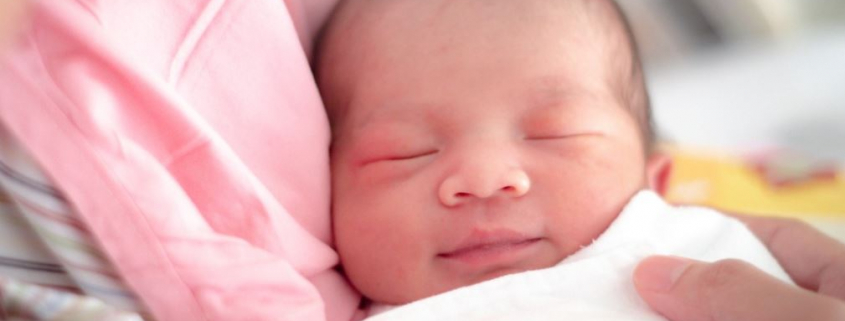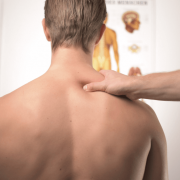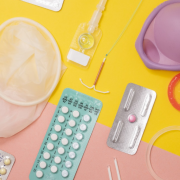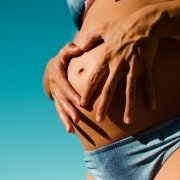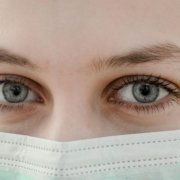A Baby With Protective Antibodies Was Born to a Mom Who Got a Covid-19 Vaccine
Florida researchers find more great news for pregnant people.
No pregnant person’s birth plan was to deliver their baby during a global pandemic. The more than 3.7 million individuals who give birth in the United States per year are looking for answers regarding Covid-19 vaccination during pregnancy.
A new preprint study from the Florida Atlantic University Charles E. Schmidt College of Medicine shows more great news about vaccination during pregnancy. Their research confirmed the first known case of a baby born with detectable protective antibodies after maternal Covid-19 vaccination.
The paper, titled “Newborn Antibodies to SARS-CoV-2 detected in cord blood after maternal vaccination,” follows the clinical course of a pregnant health care worker who received the first dose of the Moderna mRNA vaccine. Florida Atlantic University offered all front-line health care workers the vaccine. The mother had no previous known Covid-19 infection, and she qualified for and received her vaccination in week 36 of her pregnancy.
Three weeks later, she had a spontaneous vaginal delivery at term (39 weeks gestation). After delivery, she received her second dose, as per Moderna’s standard 28-day vaccine process. When the baby was born, the research team tested the healthy female infant’s umbilical cord blood for the presence of Covid-19 antibodies. The results showed a high level of IgG antibodies against the SARS-CoV-2 spike protein.
These findings are not surprising. Other vaccines given during pregnancy, like Tdap and influenza, are known to transmit immunity from mom to baby. Both influenza and Tdap vaccines reduce the risk for newborn babies who are too young to get vaccinated. These vaccines transfer antibodies from mom to baby through the placenta, protecting infants until they are old enough to receive their own vaccinations.
The placenta is the organ inside the uterus that keeps the baby alive. Maternal blood circulates through this internal filtration system, allowing the growing baby to get oxygen and nutrients from the mother. The placenta removes carbon dioxide and waste products while also serving as the defense system against invading infections like bacteria and viruses.
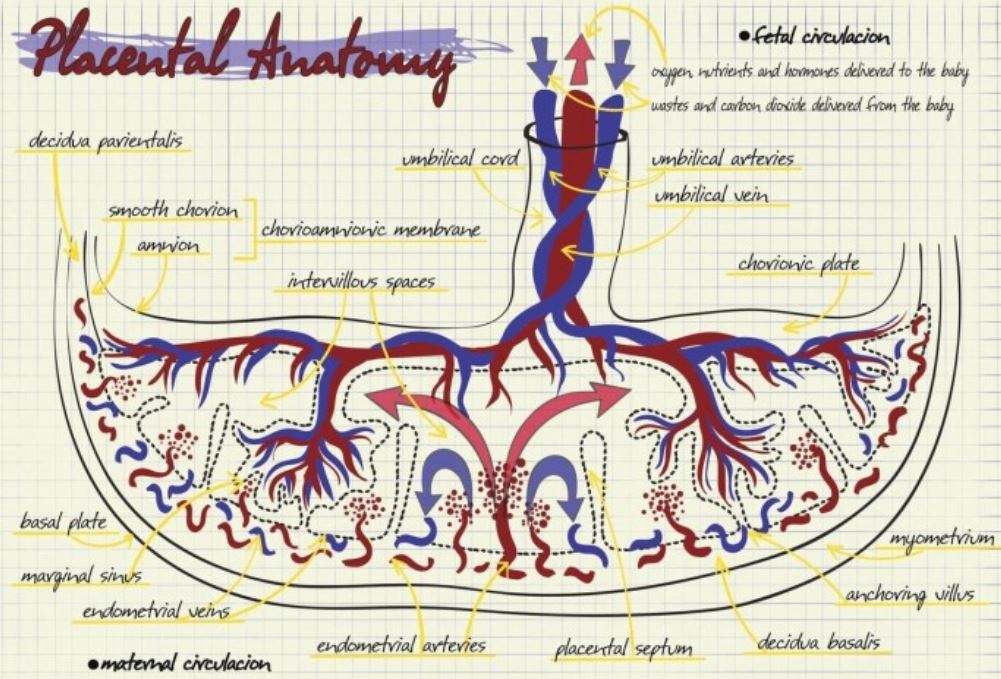
This paper is critically important to OB-GYNs, like me, as it serves as a proof of concept verifying maternal vaccination offers some degree of protection to newborn babies. Improving our maternal vaccination rates can prevent hospitalizations and potentially save lives.
This case report showing maternal antibody transmission to the baby after vaccination comes on top of other news showing antibodies are passed through breast milk. Previous studies confirmed that moms pass protective antibodies to their baby after natural Covid-19 infection and secrete antibodies during lactation.
The United States is now vaccinating 2.5 million people per day and reached the 100 million dose milestone on March 19. At this rate, all adults who want it are on schedule to be vaccinated by the end of May. Pregnant patients need evidence-based, reliable, and actionable information as soon as possible to help make informed decisions about their pregnancies.
Scientists learn more each day to help find answers regarding the novel coronavirus’s effects on pregnant people, newborns, and Covid-19 vaccination in pregnancy. Guideline and recommendations will continue to change and evolve as more data becomes available. Based on current research, we know most pregnant people who contract Covid-19 have excellent outcomes and have an increased risk of ICU admission and preterm labor.
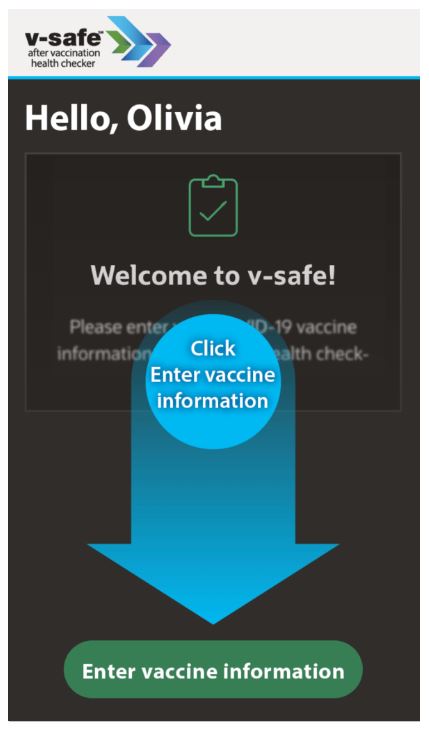
Pregnant and lactating people are eligible for any of the three Food and Drug Administration-approved vaccines, including the two mRNA vaccines from Pfizer and Moderna and the single-dose vaccine from Janssen/Johnson & Johnson. The CDC states, “There is currently no evidence that antibodies formed from Covid-19 vaccination cause any problem with pregnancy, including the development of the placenta.”
To continue to monitor the safety and efficacy of Covid-19 vaccinations, the CDC established the V-safe Covid-19 Vaccine Pregnancy Registry. Any pregnant person may choose to participate in the registry to help the world gain more knowledge and improve vaccine recommendations.
To join the V-safe pregnancy registry, click here.
Pregnant and lactating individuals are categorized as 1B in most states and1C in others. To find a Covid-19 vaccine near you, click here.
Article originally published on Medika Life.
Blog Author: Dr. Jeff Livingston
Main Blog Photo By: sippakorn Istock/Getty images
